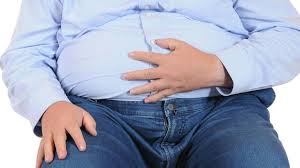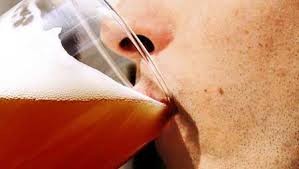Managing sugar addiction problems

Managing sugar addiction problems is possible and can be done because there is always a way out
Managing sugar addiction problems: The bitter sweetness of sugar
It is not very easy to free yourself from any kind of addiction and sugar addiction is not left out in this respect. And according to the experts at AWAREmed health and wellness resource center under the able leadership of doctor Dalal Akoury MD, the basic reasons why this may be difficult is because sugar addiction is both rooted in the physical and psychological and it will take the effort of both approaches put together in managing sugar addiction problems and eventual elimination of this kind of addiction. It, therefore, worth noting that the few times you take or consume, the lesser times you will crave for it and when you feel any withdrawal symptoms you must not be discouraged by this as it will only last for a while and then you will feel more balanced and energetic than ever. The following will help you make it easier to get your sugar problem under control.
Keep sugar and sugar products out of your house – this should include all the white and brown sugar, corn syrup, and maple syrup.
Eat enough healthy food to satisfy your hunger – only consume healthy, whole food snacks like fruit, carrots, red pepper, cherry tomatoes, dates, and dried fruit to satisfy your sweet tooth and drink plenty of water too. Add a little fruit juice to sweeten iced tea, carbonated water, and other sugar-free drinks. Frozen fruit, whole or pureed, makes a delicious alternative to ice cream. Once you have cleared sugar from your system, your taste buds will become more sensitive, and these whole natural foods will taste sweeter and more satisfying. If you slow down and eat mindfully, you’ll enjoy these foods even more.
Eat three regular meals each day – combining complex carbohydrates (vegetables, whole grains, and fruits), lean protein (poultry, fish, meat, dairy, tofu) and healthy fats (milk, cheese, omega-3’s, olive oil and other cold-pressed oils). This will help you maintain a steady blood sugar level throughout the day and reduce your sugar cravings. Eating a diet high in fiber also helps to reduce sugar cravings.
Take a multivitamin and mineral supplement. – Chromium picolinate and l-glutamine help to reduce cravings for some people.
When out ensure you are not greedily hungry – especially if sugary sweets will be the only food available. Bring your own healthy snacks with you, or eat before going out.
Get regular exercise – plenty of sunlight, and adequate sleep to reduce sugar cravings.
Identify and manage cravings that are not a result of physical hunger – but instead are rooted in stress or anxiety. Develop alternative ways of managing stress like take a walk, call a friend, read a book, play with your pet, watch a movie. Breathe, meditate, listen to music, or take a hot bath to activate your body’s relaxation response. Relaxation helps to balance your blood sugar and reduce cravings.
If you have turned to sugar to deal with uncomfortable feelings – try to identify the specific feelings and respond appropriately to them. If you are tired, take a break or rest, rather than trying to persevere in the face of fatigue. If you are bored, find something stimulating to do. If you are lonely, reach out to a friend. Overcoming your sugar addiction involves really paying attention to what you are feeling, and giving yourself what you really need instead of using sugar as a substitute.
Managing sugar addiction problems: Overindulgence in sugar
If you do overindulge in sugar – acknowledge that you stumbled and get back on track. Let go of the guilt and shame. Eating sugar is unhealthy, but it’s not a sin. As with other addictions, it doesn’t matter if you need multiple attempts to quit, just keep trying until it sticks. And to end the struggle, learn to nourish your body well and respond compassionately to your own feelings. The best sugar substitute is genuine self-acceptance and remembers to engage the experts at AWAREmed health center from time to time over any issues you may have.
Managing sugar addiction problems: The bitter sweetness of sugar
http://www.integrativeaddictionconference.com/wp-admin









